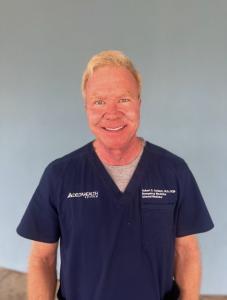Emergency Excellence: Dr. Robert Corkern’s Advanced Approaches to Critical Medical Care
Emergency Excellence: Dr. Robert Corkern’s Advanced Approaches to Critical Medical Care
Blog Article

As it pertains to healthcare, many people often confuse emergency medicine with central medicine. Equally are vital branches of medication, but they offer different functions in individual care. Dr Robert Corkern Mississippi, a renowned medical specialist, explains the main element variations between these two specialties, shedding mild on their own stresses and how each plays a part in patient health. Knowledge the variance between disaster medicine and central medication can help individuals greater steer their healthcare needs and produce knowledgeable decisions.
The Focus of Disaster Medication
Disaster medicine is made to provide immediate, intense care for individuals facing urgent or lethal conditions. Emergency physicians perform in hospitals' disaster sections (EDs), wherever they are the first level of contact for individuals experiencing significant injuries, shots, heart episodes, or other medical emergencies. Dr. Corkern emphasizes that crisis medicine is all about stabilization and quick decision-making. Emergency physicians are qualified to handle a wide range of medical problems, frequently with no reveal medical history of the individual, and must make fast judgments based on restricted information.
The principal aim of emergency medication is to stop more harm, strengthen the patient, and start the correct interventions. From injury attention to handling heart episodes or shots, crisis physicians are authorities in handling acute symptoms and providing life-saving solutions in high-pressure environments.
The Role of Internal Medication
On the other hand, inner medicine targets diagnosing and controlling persistent disorders and problems that affect people, such as diabetes, hypertension, and center disease. Internal medicine specialists, or internists, use people around an extended period, providing comprehensive care and reduction strategies. Dr. Corkern explains that inner medication is primarily worried about the whole-body management of non-emergency medical issues. Internists frequently serve as primary attention health practitioners, handling routine check-ups, controlling continuing solutions, and matching care for people with complicated, long-term health issues.
While crisis physicians handle quick concerns, internists take a more holistic and long-term approach to individual health. They usually perform carefully with specialists in places like cardiology, pulmonology, and nephrology to control chronic conditions and make sure that individuals get coordinated care for multiple wellness concerns.
Education and Way of Attention
Dr. Corkern shows the differences in the training necessary for equally fields. Emergency medication involves physicians to be equipped for a broad spectrum of conditions that'll need quick, life-saving interventions. Disaster medical practioners are trained to manage injury, critical infection, and acute exacerbations of serious conditions. This training involves a heavy focus on intense care and advanced life-saving procedures, often in high-stress environments.
On another give, central medicine physicians undergo intensive instruction in the elimination, diagnosis, and treatment of persistent conditions. They concentrate on giving long-term treatment, frequently handling a patient's medical history and corresponding with different specialists. The internist's method is patient-centered, with an increased exposure of long-term health preservation and disease prevention.
When to Find Emergency Medication or Central Medicine
Knowing when to get crisis medication versus central medicine will make all of the huge difference in the rate and type of care an individual receives. If you're encountering a medical emergency, such as for example significant chest pain, trouble breathing, or quick loss in consciousness, the emergency room is the best destination for a go. Nevertheless, for continuing health problems, persistent disease management, or general health preservation, an inside medicine specialist is usually the best place of contact.
Conclusion:
Equally crisis medicine and inner medicine perform important functions in patient care, but their approaches, emphasis areas, and training vary significantly. Dr Robert Corkern's description offers clarity how these specialties purpose and when each is most relevant. By knowledge the distinctions, patients can greater navigate their healthcare wants and ensure they're seeking the proper type of care at the proper time. Whether facing a crisis or managing a persistent problem, both specialists are integral in maintaining and improving health.
Report this page